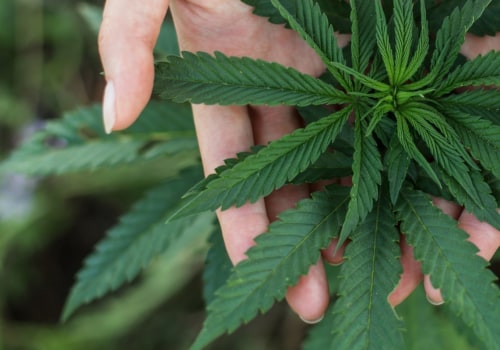Legal marijuana presents the potential for enormous benefits for economies on a local and national scale. It could also help secure investors' investment portfolios across the country and elsewhere as well. While marijuana remains illegal at the federal level, it is difficult for investors to capitalize on the growth of the industry. The number of marijuana-related companies listed on public stock exchanges is minuscule, and while investors have the option of working with over-the-counter exchanges, many of the most successful businesses in the initial cannabis legal space are based in Canada or other countries.
Both the United States and Canada are currently facing increased addiction and death from fentanyl, oxycodone and other opioids. Two large studies have demonstrated an approximately 25% decrease in opioid overdose deaths associated with the legalization of medical cannabis and the availability of dispensaries 2,3.The recent COMPASS study found that cannabis use for chronic pain has a reasonable safety profile and that patients often use it as a substitute for other, more harmful drugs, such as opioids, NSAIDs (non-steroidal anti-inflammatory drugs) and alcohol, 4 Harm reduction experts have also expressed their concern that professional societies are endangering patients' health by requiring a much higher standard for prescribing cannabis than prescribing opioids, 5.As marijuana becomes legal in more and more parts of the country, the price is likely to fall overall as a result of commodification. Overall, legal marijuana could mean a big boost to state economies and a lot of money for both state and federal governments. The ICF study estimates that there are at least 81,000 additional direct, indirect and induced jobs in California as a result of the legalization of marijuana sales. Both the United States and Canada are currently facing increased addiction and death from fentanyl, oxycodone and other opioids. Two large studies have demonstrated an approximately 25% decrease in opioid overdose deaths associated with the legalization of medical cannabis and the availability of dispensaries 2,3.The recent COMPASS study found that cannabis use for chronic pain has a reasonable safety profile and that patients often use it as a substitute for other, more harmful drugs, such as opioids, NSAIDs (non-steroidal anti-inflammatory drugs) and alcohol, 4 Harm reduction experts have also expressed their concern that professional societies are endangering patients' health by requiring a much higher standard for prescribing cannabis than prescribing opioids, 5.As marijuana becomes legal in more and more parts of the country, the price is likely to fall overall as a result of commodification. Overall, legal marijuana could mean a big boost to state economies and a lot of money for both state and federal governments. The ICF study estimates that there are at least 81,000 additional direct, indirect and induced jobs in California as a result of the legalization of marijuana sales.
The economic benefits of legalizing marijuana were already evident when the first states changed their legal positions. While you might think that legalization is simply a yes or no dichotomy, it's important to recognize that there are actually several forms that legalization can take, each accompanied by its own set of pros and cons. Finally, the perspective of legalization is discussed, along with strategies to regulate a legal drug market. All of these reasons combine to lower the likelihood that marijuana will become legal nationwide at any time.
Legal changes have generated a flourishing industry of legal cannabis companies, including those that aim to research and develop medical products based on cannabis, those working to distribute and grow marijuana, and many others. Taking a sheet from the Colorado or Washington book, four states in New Jersey, South Dakota, Montana and Arizona approved measures to legalize the use of marijuana for recreational purposes. In total, more and more states are taking steps to legalize marijuana (whether for medical or recreational use, or both). A drug such as marijuana, for example, could be legalized for recreational use, but its commercial advertising in certain places and at certain times when children and adolescents are likely to be exposed to advertisements, is restricted.







